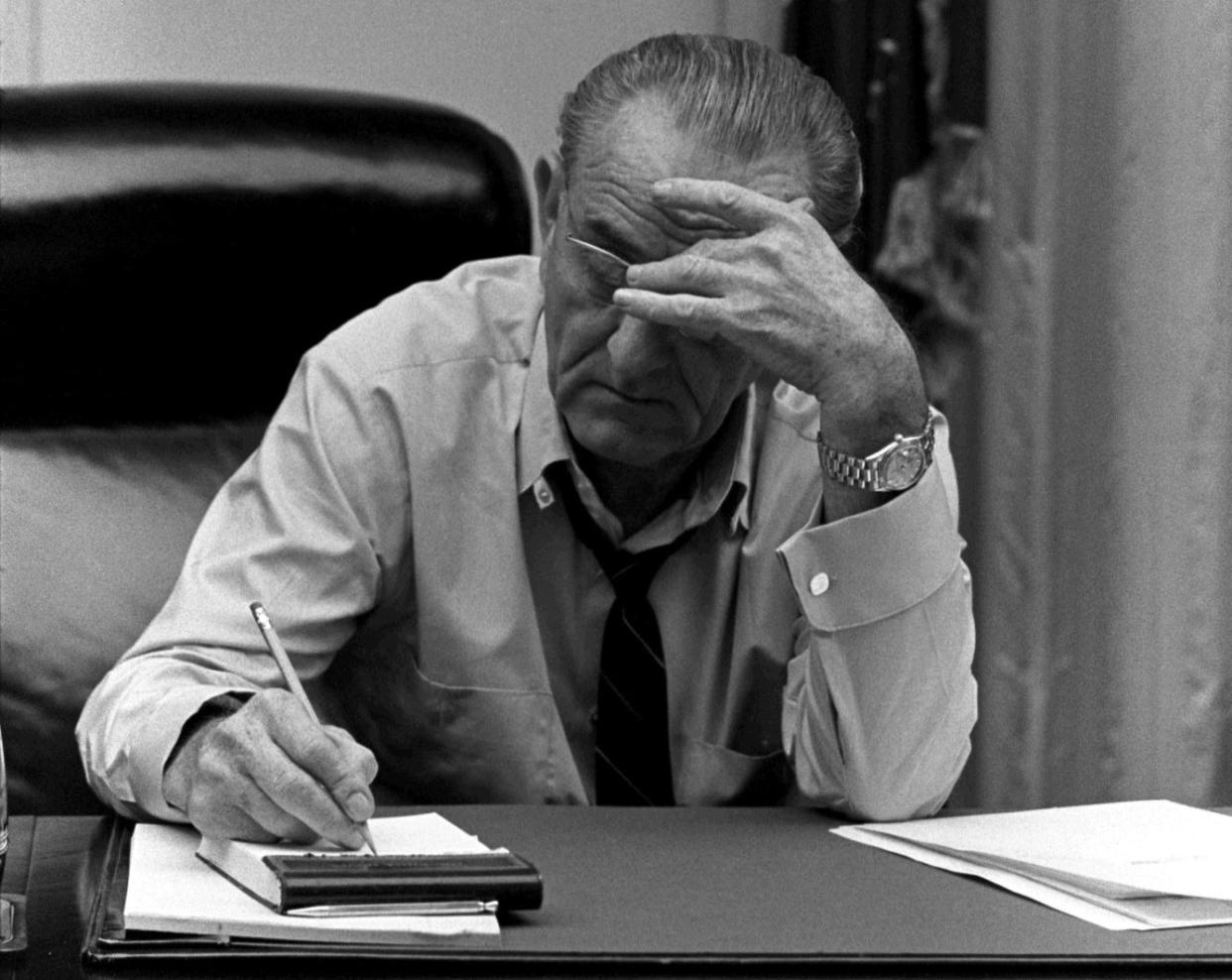How Joe Biden's bombshell announcement echoes LBJ's words in 1968

When President Joe Biden dropped his sudden bombshell announcement on Sunday that he has pulled out of the race for the White House, echoes of 1968 grew louder.
On March 31, 1968, Lyndon Baines Johnson went on the air with an unscheduled Oval Office television address to announce, perhaps even more unexpectedly: "I shall not seek, nor will I accept, the nomination of my party for another term as your president."
Johnson was in poor health and haunted by the war in Vietnam. In his address to the nation, LBJ framed partisanship during a tumultuous year on U.S. soil and in Vietnam as a distraction from what he called the "awesome duties" of the presidency, on which he vowed to focus.
Biden on Sunday sent a similar message in a one-page, 321-word letter he released, saying, "I believe it is in the best interest of my party and my country for me to stand down and to focus solely on my duties as President for the rest of my term."
Live updates: Joe Biden not seeking reelection: What will Democrats do next?
There are other parallels.
The Democratic National Convention is scheduled to be held in Chicago starting Aug. 19. The 1968 DNC also was held there.
The scene in Chicago evoked chaos, with riots outside the convention hall and scenes of Chicago police wearing blue helmets clubbing demonstrators and dousing them with powerful water cannons. Chicago Mayor Richard Daley unleashed a torrent of abusive language from the convention floor.
It was an open convention, meaning the nominee was not assured until after rounds of balloting. Democrats nominated Hubert Humphrey, the sitting vice president.
It remained unclear whether the 2024 convention would be open, or whether the Democrats would come together to support a single candidate. Biden on Sunday threw his support behind his vice president, Kamala Harris.
Biden endorses his VP: Joe Biden endorses Vice President Kamala Harris to run
The 1968 general election featured three candidates running for president. Challenging Humphrey was Richard Nixon, seeking to mount an historic comeback from political oblivion after his defeat by John F. Kennedy in 1960.
The third-party candidate was then-segregationist Alabama Gov. George Wallace, who ran as an independent after falling out with the Democrats during the civil rights movement.
'An absolute earthquake' How Fox News and CNN reacted to Biden dropping out of the race
Nixon won in an Electoral College landslide, even though he only won around 500,000 votes more than Humphrey and garnered 43% of the popular vote.
Nixon ran on a law-and-order platform. Political historians have long wondered if the result would have turned out differently but for the extreme acts of political violence earlier in the year.
Robert F. Kennedy, brother of slain president John F. Kennedy and his U.S. attorney general, was cruising to the nomination earlier in the summer, buoyed by rising opposition to Vietnam War and bolstered by strong support among young people. Kennedy, then a U.S. senator for New York, was gunned down at a campaign appearance in Los Angeles on June 6, 1968, just two months after the Rev. Martin Luther King Jr. was assassinated in Memphis.
Kennedy's son, Robert F. Kennedy Jr., is running as a third-party candidate this year.
From LBJ to Biden: How Joe Biden's bombshell announcement echoes LBJ's words in 1968
This article originally appeared on Arizona Republic: Joe Biden's bombshell echoes Lyndon Baines Johnson's 1968 announcement
